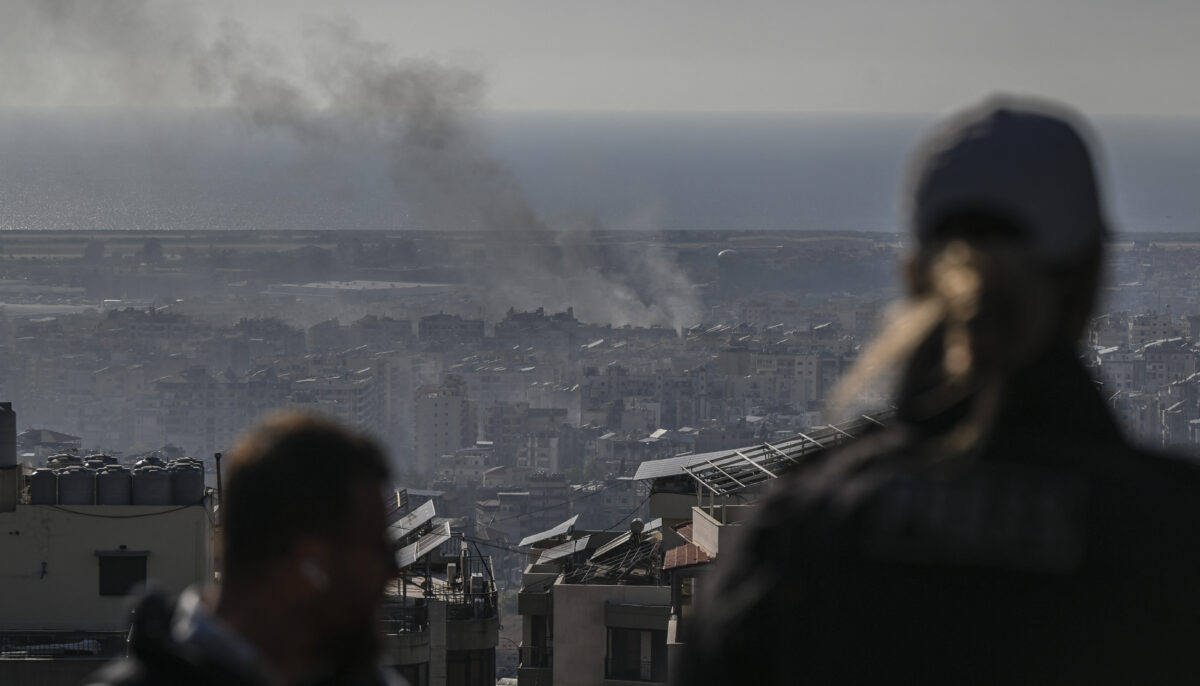Beirut, October 10, 2024 | This week, towns and villages across the South and the Beqaa, as well as areas in Beirut’s southern suburbs, have already become disconnected from the rest of the world after Israeli bombardment of telecom infrastructure.
In addition to the physical destruction of homes, roads, and vital facilities, the Israeli occupation is also weaponizing communications technology to terrorize people in Lebanon. Many have been receiving threats in the Hebrew language, while others are finding themselves locked out of messaging apps and experiencing censorship.
Unexplained WhatsApp Ban
WhatsApp users in Lebanon have reported incidents of being banned from the messaging app without a clear justification or reasoning. It is happening either after being added to groups sharing information about the war, or after contacting people from the South or near Baalbek, or commuting to those locations.
The significant number of banned WhatsApp accounts, the most popular messaging application in Lebanon, has been alarming. Many users reported sudden account suspensions without any explanation or ways to appeal. Amid a near total absence of the state in these catastrophic times, millions of people are relying on the app for sharing critical resources, supporting each other, and finding aid. WhatsApp is also popular since it is the most affordable, where telecom companies offer a limited data bundle that covers WhatsApp only for a small fee.
Our Digital Safety Helpdesk warns that these bans raise significant concerns about user privacy. While conversations may be encrypted, metadata is not. Surprisingly, the Digital Safety Helpdesk at SMEX has not received mass complaints about content moderation on social media since the beginning of the Israeli aggression on Lebanon.
In contrast, last October, the Helpdesk received an overwhelmingly large number of cases reporting on different tactics used by Meta to silence Palestinian narratives with the onset of the genocide.
Targeted Messages and Threats in Hebrew
SMEX has been documenting the multitude of messages sent by supporters of the Israeli regime to confuse, intimidate, and scare people in Lebanon, whether through false evacuation calls or by addressing people by their names coupled with a disturbing message.
One user, a Sheikh with a foreign passport, received a message allegedly from the “IDF” in Hebrew warning him to leave the country within three days before the Israeli regime targets him and his family. The message included sensitive personal information, including his nationality and his occupation.
As previously reported, there is no evidence to whether these targeted messages are tied to a specific unit within the Israeli occupation’s army, but it is possible that these attacks are part of an organized digital army’s work.
Increasing Fear of Digital Threats
People have raised concerns about unfamiliar networks appearing in their phone Settings. These are different from the usual Alfa or Touch, the only operators in Lebanon, with numbers instead of network names.
In response, the Ministry of Communications issued a statement reassuring users that these numbers are not a cause for concern. According to the ministry, codes such as 05 415 and 08 415 refer to recognized networks within Lebanon, while the code 30 280, which may also appear, corresponds to a private network in Cyprus that is not accessible.
SMEX advises the public to avoid spreading rumors and misinformation about these network codes to prevent unnecessary panic.
Gradual Loss of Internet Coverage
In the most war-affected areas of Lebanon, such as South Lebanon, Bekaa, and Beirut’s Southern Suburbs, internet connectivity has been almost absent. For journalists on the frontlines, it’s becoming increasingly hard to report due to frequent telecom outages.
So far, 113 Touch and 114 Alfa stations are out of service, and fixed internet lines are non functional.
Fierce Censorship on Telegram in Europe
Telegram, which has been widely used by people to follow war-related news after WhatsApp enforced bans, has been reportedly restricting some channels in Europe. Telegram is often considered a less moderated alternative to WhatsApp.
Nearly a month after Telegram’s CEO Pavel Durov was arrested on charges of enabling criminal activity, Durov announced that user data, such as IP addresses and phone numbers, will be handed out to law enforcement authorities in Europe upon their request.
As usual, SMEX has compiled extensive tips and tricks for you to stay informed and connected during a communication crisis, so check it out, and keep it accessible to you!
We are here for you. If you suspect any form of digital threat, contact our Digital Safety Helpdesk:
Signal/WhatsApp: + 961 81 633 133
Email: helpdesk@smex.org
Safety and Security Suggestions:
Image: MURAT SENGULANADOLUAnadolu via AFP



